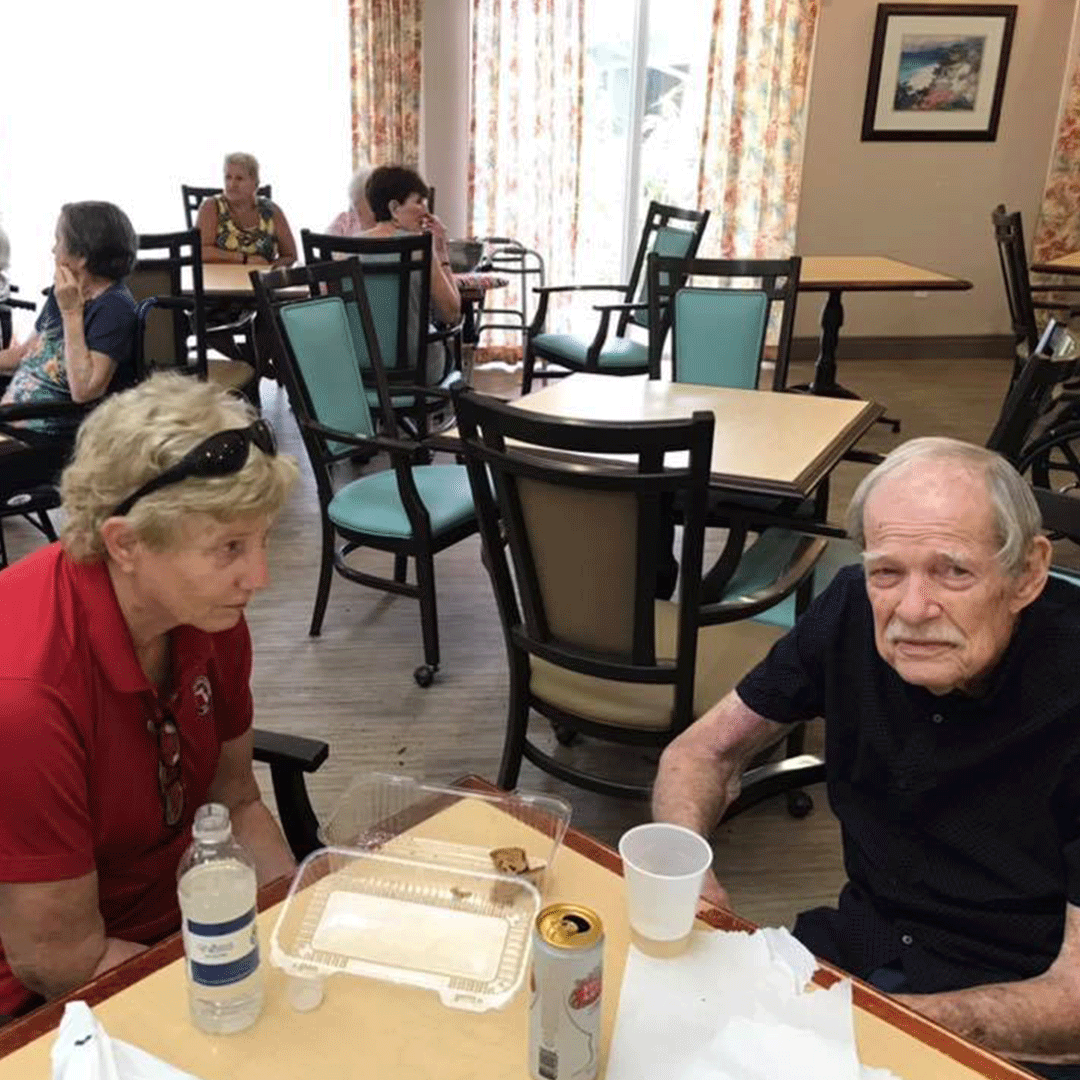One of the most compelling effects of the COVID-19 pandemic was the intense loneliness many people felt – regardless of age. Being locked down and separated from families intensified any predisposition to isolation and anxiety, and the era will forever be remembered as an exceptionally difficult one for the elderly. Seniors citizens are more susceptible to feeling lonely and succumbing to repair in isolation, which is a common problem. Loneliness is not just a problematic emotion – there are some dangers and long-term consequences to senior isolation. Fortunately, there are proactive steps you can take to help your senior loved one to feel more connected.

Older adults may become more isolated for many reasons. They may lose a spouse, their friends may move to another residence, or their family may no longer be local. Often, once a senior loses their ability to drive, the situation only worsens. In fact, the AARP has indicated that loneliness is a public health problem of epidemic levels.
Fast Fact: More than 42 million Americans “identify as lonely.” One in four seniors said they feel isolated from other people at least some of the time, and one in three say they don’t have regular companionship.
Health Problems Associated with Loneliness
Over time, social isolation can result in serious health and lifestyle consequences for senior citizens, including:
- Increased risk of cardiovascular disease
- Increased incidence of heart attack or stroke
- Attacks of depression or anxiety
- Increased risk for chronic illness
- Elevated stress levels
- Increased risk of dementia and Alzheimer’s
- Reduced physical mobility
- Higher incidence of malnutrition
- More doctor visits and hospital admissions
- Shorter life spans
Signs Your Senior May Be in Danger
Most people hesitate to reach out when they feel lonely. As dangerous as isolation may be, those afflicted with it don’t want to bother others with their sadness.
As a family member, you must check in often with your senior loved ones. Be ready to discuss important subjects, such as loneliness and isolation.
You can keep an eye on their health and wellbeing by looking out for possible red flags, such as:
- A normally talkative person becomes withdrawn or uncommunicative
- They withdraw from regular social activities and engagements
- They begin losing significant amounts of weight
- They stop participating in healthy activities such as exercising, preparing meals, or keeping up with their daily hygiene routines
- Their home becomes uncharacteristically messy or uncared for.
How Family and Friends Can Help
Visit in Person: Now that visiting in person is again possible, see them as much as possible. Quality time with your loved one is a great way to alleviate loneliness – whether you take a walk, share a meal, or even just play a board game. Visiting in person also allows you to check on your senior loved one’s health, help with chores, and do needed jobs around the home.
Use Technology: There is nothing like being face-to-face, but sometimes distance makes that impossible. Technology allows us to connect with seniors effectively, from emails to social media, video chatting, and instant messaging. Of course, a good old-fashioned phone call is great too! Put your calls or emails on your schedule so your loved one can count on hearing from you – and make it a priority never to miss a call.
Help with Transportation Services: Sometimes, a senior can alleviate loneliness just by getting out of the house and staying socially engaged. But if seniors cannot drive or get to public transportation, they can feel cut off. Help them out by ordering a driver to pick them up or look into Companions for Seniors to help your loved one stay connected to their community. You can also look into the possibility of one of their friends who still drives to pick them up to get to church meetings, card games, or doctor’s appointments. Remember, the driving senior may also need companionship and a sense of purpose!
Look for a Senior Companion: Different levels of support are needed, but most seniors will benefit from a companion. Some may need professional care, while others just love seeing their teenage grandkids every afternoon! A companion can provide your family member with the personalized attention they need while keeping you in the loop about overall health and wellness. Companions can also help with cooking, cleaning, laundry, and driving to errands. Companions are one of the best ways to alleviate the dangers of loneliness for seniors and will enrich everyone’s lives.
If your senior needs more attention or care, it may be time to consider assisted living. Call A Banyan Residence to learn more about our senior living residence options.
